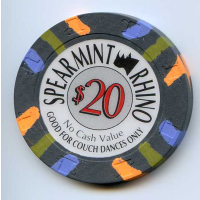$12.9 Million Class-Action Settlement Establishes Strippers Aren’t Contractors

Fifteen years ago, dancers at the Lusty Lady peepshow in San Francisco initiated the first successfully unionized sex business in the country.
Some expected the event to usher in a new era of labor organization in the sex industry. But no one has followed in their footsteps and labor-management fights in the industry are regularly litigated in courts across the country.
New ground was recently broken in California when U.S. District Judge Virginia A. Phillips, who ruled “Don’t Ask, Don’t Tell” unconstitutional in 2010, approved settlement of a $12.9 million class-action lawsuit for strippers who claimed they were illegally classified as contractors for the purpose of denying them proper pay and benefits.
Employers typically have more control over the day-to-day activities of an employee than a contractor (e.g. scheduling), and in exchange employees receive certain benefits and considerations. Employers have increasingly used the contractor designation to have the best of both worlds: control without the labor expense.
The two-year-old lawsuit was spearheaded by a couple of exotic dancers at a Spearmint Rhino Gentlemen’s Club in Oxnard, just outside of Los Angeles. They said in their complaint that the club regularly took most of the tips they earned for lap and table dances by charging them house performance fees and dinging them for failure to generate more alcohol purchases among the customers.
They were joined by 12 other Spearmint Rhino dancers and a yet-to-be-determined number of dancers in six states in a settlement that eventually included 17 corporate entities.
The settlement changes the dancers’ status from independent contractors to employees, partners or shareholders in their businesses, which could entitle them to worker's compensation, unemployment and health insurance if they qualify. Dancers in California will no longer have to pay fees to perform.
Melissa Gira Grant—a former member of Exotic Dancers Union, SEIU Local 790, “No Justice, No Piece”—cheered the settlement in an article she wrote for the Atlantic but pointed out that winning settlements that don’t go to trial “have limited effect to set precedent and make sustained change [to] the business.”
Over the years, dancers have found their working conditions degraded as corporate chains like Spearmint Rhino replace small, local establishments.
“The corporate consolidation of strip clubs is not that different than what’s hit small businesses all over the country,” Grant wrote, “only almost no one stood up to chase the Hustler Club out of town on a workers’–rights platform.”
–Ken Broder
To Learn More:
Victory for Strippers! (Unionosity Magazine)
Organized Labor's Newest Heroes: Strippers (by Melissa Gira Grant, The Atlantic)
Spearmint Rhino Exotic Dancers Settle Suit for Nearly $13 Million (by Stephanie Hoops, Ventura County Star)
In Search of Stripper Solidarity (by Rachel Aimee, In These Times)
Strippers Win $13 Million Class Settlement (by Matt Reynolds, Courthouse News Service)
Jane Doe 1 et al v. Spearmint Rhino Companies Worldwide Inc et al (Justia U.S. Law)
- Top Stories
- Controversies
- Where is the Money Going?
- California and the Nation
- Appointments and Resignations
- Unusual News
- Latest News
- California Forbids U.S. Immigration Agents from Pretending to be Police
- California Lawmakers Urged to Strip “Self-Dealing” Tax Board of Its Duties
- Big Oil’s Grip on California
- Santa Cruz Police See Homeland Security Betrayal in Use of Gang Roundup as Cover for Immigration Raid
- Oil Companies Face Deadline to Stop Polluting California Groundwater





